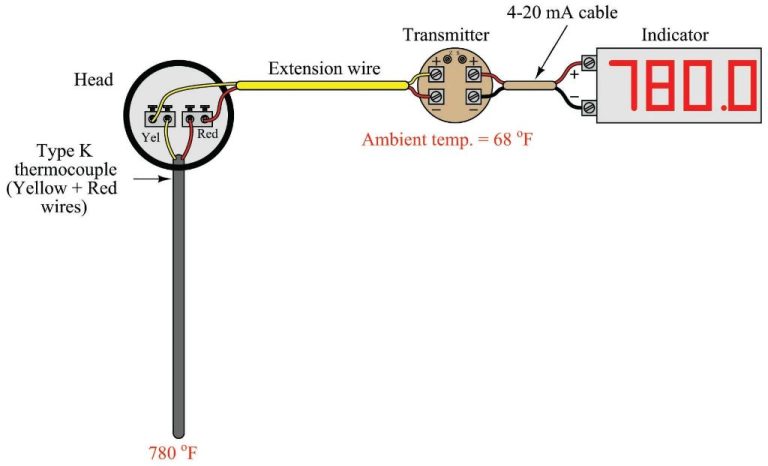How Do You Cook An Egg In The Microwave Without It Exploding?
Cooking eggs in the microwave can be a quick and convenient breakfast option for many people. However, a common problem is that eggs often explode when microwaved. This can make a huge mess and ruin your breakfast. Knowing how to properly cook eggs in the microwave without them exploding is a useful skill for any cook.
Microwaved eggs can be ready in just a minute or two, while cooking eggs on the stove takes much longer. Being able to prepare eggs quickly in the microwave means you can have a hot, nutritious breakfast even when you’re rushed in the morning. Plus, it’s one less pan to clean up. This article provides helpful tips to prevent egg explosions so you can enjoy perfect microwaved eggs anytime.
Problems with Microwaving Eggs
One of the main issues with microwaving eggs is that they can easily explode due to steam buildup inside the egg (Why Do Eggs Explode in the Microwave?). As the microwave heats the egg, the heat causes the proteins and water inside to rapidly expand. Since the shell is hard and unable to stretch, pressure builds up quickly until the egg explodes.
According to research, steam buildup and pressure is the primary cause of egg explosions and injuries from microwaved eggs (Exploding microwaved eggs–revisited). The study found that 4 out of 41 burns from microwave ovens were due to exploding eggs.
Additionally, the uneven heating of a microwave can create hot spots that turn liquid to steam rapidly. This accelerates the pressure buildup and likelihood of explosion. So microwaving eggs directly requires precautions to allow steam to escape.
Puncture the Yolk
One of the most effective ways to prevent eggs from exploding in the microwave is to puncture the yolk before cooking. As explained by Simply Recipes, eggs can explode because steam builds up inside the egg as it heats up (source). Puncturing the yolk with a toothpick or knife creates a small hole that allows steam to escape, releasing pressure inside the egg. This prevents the rapid buildup of steam that would otherwise cause the egg to burst violently.
According to Food Republic, microwaving an egg with an intact yolk can lead to a loud and messy explosion as steam has nowhere to escape (source). However, a simple poke to the yolk provides an outlet for steam and moisture to vent, letting the egg cook gently without exploding. Just a basic poke or two with a toothpick or fork tines punctures the membrane and makes all the difference. With this easy step, you can microwave an egg safely.
Quora explains that egg yolks contain proteins that trap steam, leading to rapid pressure buildup if the yolk isn’t pierced before cooking (source). A preemptive poke to the yolk destabilizes these proteins so they can’t contain the steam. This prevents the steam from accumulating to the point of sudden explosion. So for fail-proof microwaved eggs, remember to poke the yolk first.
Use a Microwave Egg Cooker
One of the easiest ways to cook eggs in the microwave without explosions is to use a specially designed microwave egg cooker. These handy gadgets are designed with features like ventilation holes or steam vents that allow steam to escape and prevent eggs from exploding (1) (2).
Microwave egg cookers often have a lid with peaks or spikes that pierce the egg yolk when closed. This prevents the buildup of pressure inside the egg that can lead to explosions. The spikes allow steam to escape gradually as the egg cooks.
Many cookers are made from microwave-safe materials like plastic or silicone. Look for ones that are BPA-free. Popular brands include Nordic Ware, Golden Pearl, and WowBacon (3).
Using a microwave egg cooker takes the guesswork out of microwave egg cooking. Simply crack an egg into the cooker, pierce the yolk if needed, and microwave on high for the time specified in the product instructions, usually 1-3 minutes. The egg cooks evenly and the cooker contains any messes.
Cook at Lower Power
One of the best ways to prevent eggs from exploding in the microwave is to cook them at a lower power level. According to Eggs.ca, cooking eggs at 50-70% power allows steam to vent gradually so the eggs don’t burst.
Microwaves cook food quickly by exciting water molecules and generating internal heat. At full power, this rapid heating can create steam faster than it can escape from the eggs, leading to an explosion. But reducing microwave power to medium allows more time for steam to release slowly through small pores in the egg white.
For a soft-boiled egg, Eggs.ca recommends cooking at 50% power for 50 seconds. For scrambled eggs, cook at 50% power for short intervals of 15-30 seconds at a time, stirring in between. Adjust cook times based on your microwave wattage and quantity of eggs.
So for foolproof microwaved eggs, reduce the power level and allow time for steam to vent. With a lower, gentler heat, it’s easy to poach, scramble, or soft boil eggs in the microwave without messy explosions.
Use Shorter Cook Times
One of the most effective ways to cook an egg in the microwave without it exploding is to use shorter cook times. Rather than microwaving the egg for one long continuous burst, it’s better to cook it in short increments of 10-30 seconds. Check on the egg after each short burst to see if it’s reached the desired level of doneness.
This approach helps prevent overcooking and the pressure buildup inside the egg that can lead to it exploding in the microwave. According to the Egg Marketing Board of Canada (https://www.eggs.ca/recipes/basic-microwaved-eggs), eggs should initially be microwaved for 10 seconds, then checked and microwaved in additional 10 second bursts as needed.
Cooking in short increments allows steam to escape rather than building up unchecked inside the egg if microwaved for too long continuously. So pay close attention and frequently pause and check the egg during the cooking process for best results.
Add Water
Adding a small amount of water to the dish or cup can help prevent eggs from exploding in the microwave. According to Simply Recipes, the buildup of steam inside eggs is what causes them to explode when microwaved [1]. By adding a tablespoon or two of water to the dish, the eggs can steam gently instead of building up intense pressure. The water creates a humid environment that lets steam escape gradually. This cooking method works best for poaching eggs rather than frying or scrambling. Be careful not to add too much water, as it can make the eggs watery. A small amount of water in the dish can help cooked microwaved eggs turn out perfect every time.
Scramble or Fry
One way to avoid eggs exploding in the microwave is to pre-scramble or fry the eggs before microwaving according to https://www.budgetbytes.com/make-ahead-microwave-breakfast-scrambles/. Pre-scrambling the eggs before microwaving allows the eggs to cook more evenly and prevents steam from building up inside.

To scramble eggs for the microwave, first crack eggs into a microwave-safe bowl or mug. Add a small amount of milk or water (1-2 tbsp per egg). Use a fork to lightly beat the eggs, milk and any seasonings together until uniform. Microwave the scrambled eggs in 30 second intervals, stirring in between, until set but still moist.
Frying eggs before microwaving also prevents uneven cooking. Simply heat a small amount of butter or oil in a skillet over medium heat. Fry the eggs to your desired doneness, then transfer to a microwave-safe dish and reheat as needed in the microwave in short 15-30 second intervals.
Pre-scrambling or frying helps the eggs cook evenly when reheated and prevents explosions. According to https://www.callmebetty.com/meal-prep-microwave-egg-cups-freezer-friendly/, microwaving pre-cooked scrambled egg cups by reheating in 30 second intervals also prevents uneven cooking.
Use the Right Dishes
The type of dish you use when microwaving eggs is important for preventing explosions. Shallow, vented dishes allow steam to escape so pressure doesn’t build up inside the egg. The All Recipes article recommends using a microwave-safe ceramic ramekin or soufflé dish with a wide bottom. You can also use a microwave egg cooker with a vented lid designed for steaming eggs.
Avoid microwaving eggs in regular bowls, mugs or deep containers, as these types of vessels trap steam and heat. The trapped pressure can lead to the egg exploding in the microwave. Stick to wide, shallow containers that give steam room to vent.
Conclusion
Microwaving eggs can be convenient and quick, but it’s important to take precautions to prevent explosions and overcooking. The main points are to pierce the yolk, use lower microwave power and shorter cook times, add water, and choose microwave-safe cookware. Puncturing the yolk releases steam so pressure doesn’t build up. Cooking at 50% power or less helps prevent overheating. Limiting cook times to 30-60 seconds at a time allows you to check for doneness. Water in the dish or ingredients helps distribute heat gently. Microwave-safe ceramic mugs or bowls retain heat better than plastic or paper. With these tips, you can safely cook eggs in the microwave with minimal mess.
The bottom line is microwaved eggs don’t have to turn into egg bombs if you follow some basic techniques. Adjusting the power, time, and ingredients can allow you to quickly cook eggs to your desired doneness. Now you can enjoy the convenience of microwaved eggs for breakfast, snacks, or meals any time of day.




